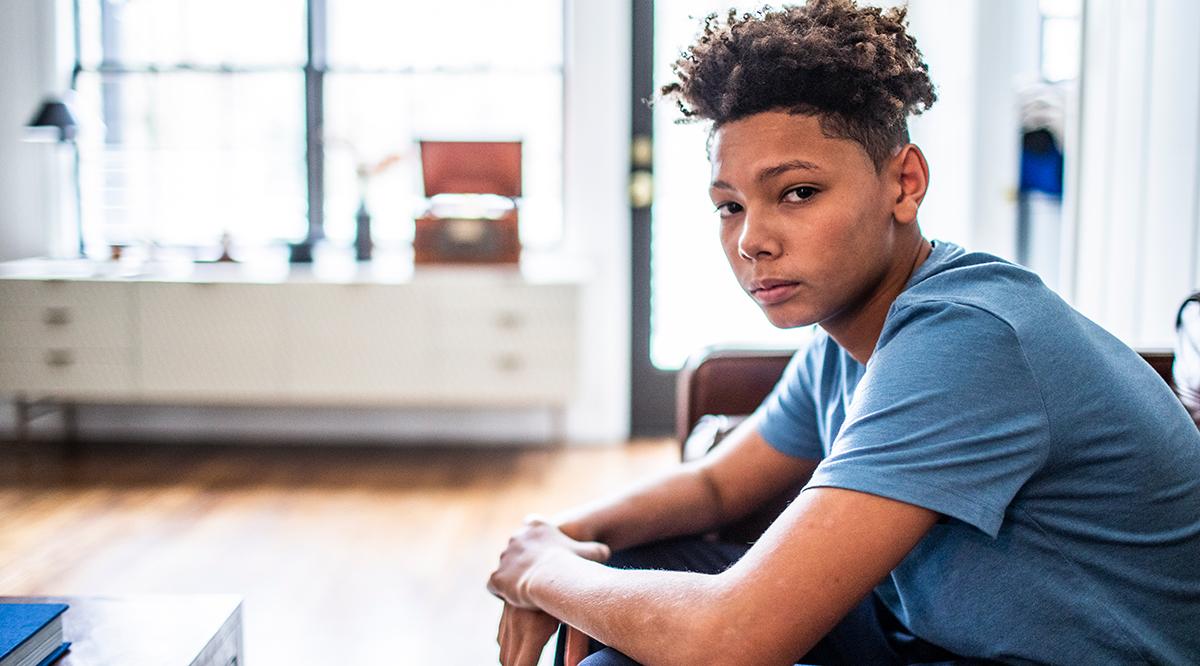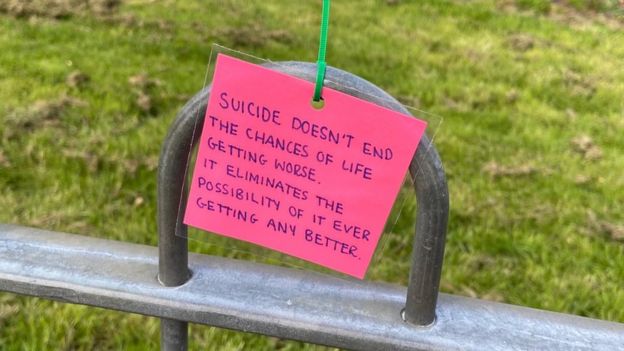
James Donaldson notes: As I’m slowly getting on top of my physical health issues, I am turning more and more of my time and efforts towards mental health issues, especially pertaining to our young people and student-athletes.
Having gone through a recent bout of depression and suicidal thoughts myself, I realize now, that I can make a huge difference in the lives of so many by sharing my story, and by sharing various resources I come across as I work in this space. http://bit.ly/JamesMentalHealthArticle
HUNTSVILLE, Ala. – WHNT News 19 partnered with the Huntsville Hospital Foundation and its SPEAK Program to encourage everyone to speak up to prevent suicide. The most powerful thing anyone can do to stop suicide is to talk about it.
Through this initiative, the goal is to reach someone who may be struggling with suicidal thoughts, to offer guidance to those who desperately want to help a loved one and to show the impact this public health issue has on the community.
“Depression is the number one cause of suicide,” explains Dr. Tarak Vasavada, a psychiatrist with Huntsville Hospital. “But there are other people who are stressed about some event that happens in their family, divorce, separation, job loss, so they end up hurting themselves. And those suicides, quite often, are very impulsive.”
Mental health conditions are often seen as the cause of suicide, but suicide is rarely caused by any single factor.
“Sometimes there are no warning signs and the family is completely left alone,” said Dr. Vasavada. “They’re left without answers. And a lot of studies say that suicide happens within 20 minutes, that people think about it and just cannot stop themselves.
Warning Signs of Suicide:
- Talking about wanting to die
- Looking for a way to kill oneself
- Talking about feeling hopeless or having no purpose
- Talking about feeling trapped or in unbearable pain
- Talking about being a burden to others
- Increasing the use of alcohol or drugs
- Acting anxious, agitated, or recklessly
- Sleeping too little or too much
- Withdrawing or feeling isolated
- Showing rage or talking about seeking revenge
- Displaying extreme mood swings
According to the American Foundation for Suicide Prevention, suicide is the eleventh leading cause of death in the state of Alabama, with one person dying by suicide every 11 hours.
If someone you know is experiencing suicidal thoughts, there are some simple ways you can help.
What to Do:
- Always take the threat seriously
- Do not leave the person alone
- Remove any firearms, alcohol, drugs, or sharp objects that could be used in a suicide attempt
- Take the person to an emergency room, or seek help from a medical or mental health professional
- Download the SPEAK App
Resources to Contact:
- National Suicide Prevention Lifeline at 1-800-273-TALK (8255)
- Crisis Services of North Alabama at (256) 716-1000
- Crisis Text Line by texting “HOME” to 741741
A safety plan is also designed to help guide you or a loved one through a crisis. Keep the plan easily accessible in case of suicidal thoughts.
Make a Safety Plan:
- Recognize your personal warning signs: What thoughts, images, moods, situations, and behaviors indicate to you that a crisis may be developing? Write these down in your own words.
- Use your own coping strategies: List things that you can do on your own to help you not act on urges to harm yourself.
- Socialize with others who may offer support as well as distraction from the crisis: List people and social settings that may help take your mind off of difficult thoughts or feelings.
- Contact family members or friends who may help to resolve a crisis: Make a list of people who are supportive and who you feel you can talk to when under stress.
- Contact mental health professionals or agencies: Make a list of names, numbers and/or locations of clinicians, local emergency rooms, and crisis hotlines. Put the Lifeline number, 1-800-273-8255, into your phone.
- Ensure your environment is safe: Have you thought of ways in which you might harm yourself? Work with a counselor to develop a plan to limit your access to these means.
Every struggle is different, but many people have felt the same way. Healing and help can happen.
“There is a hope for people who are suicidal,” said Dr. Vasavada. “The feelings that you have today are not going to last until tomorrow.”
It is also important to stop and listen to your own mental health needs and learn mental health first aid.
Other Means of Self-Care:
- Take a walk outside
- Write a love letter to yourself
- Write about something you are grateful for in your life (it can be a person, place, or thing)
- Create a happy playlist and a coping playlist
- Treat yourself to a favorite snack
- Watch your favorite movie
- Forgive someone
- Forgive yourself
- Say thank you to someone who has helped you recently
- Create a DIY self-care kit of things that make you feel better
- Take your medication on time
- Take a new fitness class at the gym (yoga, Zumba, etc.)
- Plan a lunch date with someone you haven’t seen in a while
- Pamper yourself with an at-home spa day
- Take a day off from social media and the Internet
- Reach out to your support system
- Cuddle with your pets or a friend’s pet
- Take the time to stop, stand and stretch for 2 minutes
- Wake up a little earlier and enjoy your a morning cup of tea or coffee before the morning rush
- Take a hot shower or bath
- Take yourself out to dinner
- Volunteer
- Start that one project you’ve been contemplating for a while
- Sit with your emotions, and allow yourself to feel and accept them. It’s okay to laugh, cry, just feel whatever you’re feeling with no apologies!
- Cook a favorite meal from scratch
- Take a 5-minute break in your day
- Compliment someone (and yourself, too!)
- Give yourself permission to say no
- De-clutter your mind: write down 5 things that are bothering you, and then literally throw them away
- Donate 3 pieces of clothing that you no longer wear
- Take the time to find 5 beautiful things during your daily routine
- Take a mental health day from school, work, etc.
- Take a nap
- Reach out to the Lifeline


